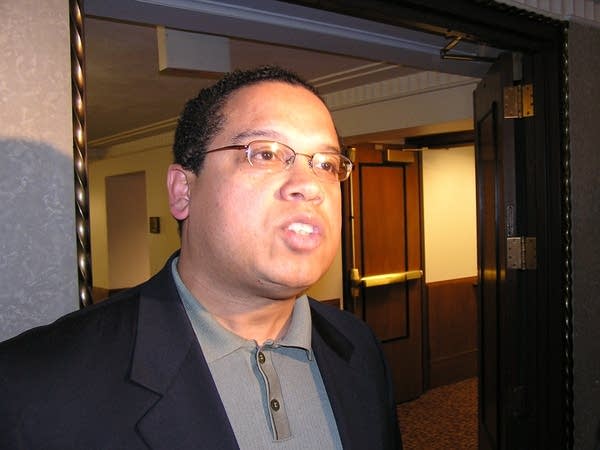Voting bill stirs strong emotions at Capitol
Go Deeper.
Create an account or log in to save stories.
Like this?
Thanks for liking this story! We have added it to a list of your favorite stories.

Right now Minnesota law allows people to register to vote on the day of an election. People can register with a photo ID, a utility bill with an up to date address or through a neighbor who can vouch for a voter's residency.
Rep. Tom Emmer's legislation basically does two things: it would require citizens to provide a passport, a birth certificate or naturalization papers when they register to vote. Voters would also have to provide proper photo identification when they go to the polls on election day.

Low-income Minnesotans would be able to get a Minnesota photo ID for free under the legislation. Emmer, a Delano Republican, says he's proposing the bill because he's concerned about voter fraud in Minnesota and other places across the country.
"We believe in bringing forth this legislation that important reforms are necessary to remove doubts about our elections and to help citizens in the state of Minnesota look upon the process of casting their vote as an inspiring experience and not an ordeal," he said.
Turn Up Your Support
MPR News helps you turn down the noise and build shared understanding. Turn up your support for this public resource and keep trusted journalism accessible to all.
Three citizens testified in support of the bill along with n official with the office of Secretary of State Mary Kiffmeyer, who's also a Republican.
Some of the citizens testified they were concerned that illegal immigrants were voting when they shouldn't be. None of them said they challenged the residency of those in question at the polling places. One supporter of the legislation, Diana Bratlie, said the proposal shouldn't be a hardship for voters since many already have the necessary paperwork. She also suggested that citizens should be responsible enough to plan ahead for the first Tuesday in November.
"The election days have been set for the millenium. It should not surprise anyone that Election Day is coming up. They should have plenty of time to get their birth certificate," Bratlie said.

But several groups called the proposal a solution in search of a problem since there have been few reported instances of voter fraud in Minnesota.
At least nine groups testified against the bill, including the League or Women Voters, the Voting Rights Coalition and the American Civil Liberties Union. They argue that the proposal makes it harder for people to vote and would reduce Minnesota's nation-leading voter turnout.
Ruth Martin works for the People for the America Way which focuses on civil rights and civil liberties. She argues that some people can't afford a passport and some don't have birth certificates.
"It's true that a lot of Americans don't have passports. I would say that it's also true that it's not that easy to get a birth certificate and it's not free and it would actually point to our friends in Louisiana who will never be able to get a birth certificate now since many of the county hospitals and buildings have been destroyed," she said.
Others say the bill will be successfully challenged in the courts since the courts have ruled a similar Georgia law unconstitutional.

DFL Rep. Keith Ellison, of Minneapolis, said the bill is a "nefarious attempt" by Republicans to make it more difficult for people of color, the poor and the elderly to vote.
"This is voter suppression pure and simple. The people who are proposing this don't want to try to persuade Americans to vote for their point of view, they just want to stop Americans from being able to vote at all," he said.
Ellison was one of five DFLers who voted against the bill. All six Republicans voted in favor of it. The voting process also drew some criticism from DFLers because the committee chair took the unusual move of taking a committee break so he could wait for a Republican to return to the committee room to cast the tie-breaking vote.
The bill will now be voted on by the full House. It faces a bigger hurdle in the Minnesota Senate since the chair of the Senate Elections Committee opposes the bill and says it will be defeated in committee.
Dear reader,
Your voice matters. And we want to hear it.
Will you help shape the future of Minnesota Public Radio by taking our short Listener Survey?
It only takes a few minutes, and your input helps us serve you better—whether it’s news, culture, or the conversations that matter most to Minnesotans.




